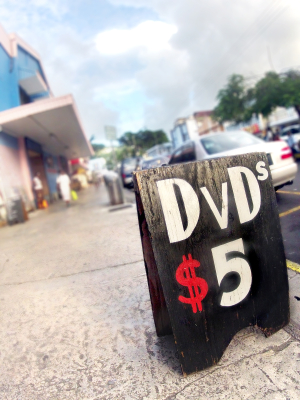
Considerations BEFORE signing over your film’s home video rights
Although DVD distribution revenue has by all accounts declined significantly since the start of home video and the development of the format, most film distributors still distribute DVDs. Sales are down, but there are profits to be had for more commercial or popular fare that is strongly supported with marketing spend, whether studio, indie, or niche.

We always advise filmmakers to conduct Direct Distribution of DVDs to their audience even when we or someone else is handling licensing deals for them. Often though, if a distributor takes on Home Video (i.e. DVD), the expenses associated with the release and the diminishing revenues are the explanation for why digital rights must be licensed to the distributor along with the rights to release the film on traditional physical formats. Digital rights, at least many of them, rightly belong in the home video category,but here’s the rub. While the distributor has more money and more connections and ability to get a DVD into retail stores, they likely take a bigger commission on digital platform sales than an aggregator who is paid a flat fee or a smaller percentage. Of course, even direct digital distribution (streaming from your own site) requires some service or other that takes a fee. It’s just usually less costly than a conventional distributor’s fee. Back to the rub.
So a well heeled distributor gets a big retailer to order your DVDs when you could not have achieved that on your own and probably more money is spent marketing it than you ever could afford to spend. But note that’s also more money to be recouped before you see a return. The DVDs that don’t sell come back. And what comes back gets credited. It should be noted, many conventional distributors take their sales fee off of initial sales, regardless of returns.
So the distributor has the muscle to move the units to a retailer, but not enough muscle to get the public to buy them. They did their best, and even risked their expenses and time and staff energy. But the units come back just the same. Their sales fee is calculated off the top and the net left over for the filmmaker can be paltry. You may or may not be worse off than having done all the distribution yourself.
It is something to think about before you push for traditional distribution where there is not a big enough advance, or none, to recoup your initial investment in the project and you might have been better going it alone, still holding the rights over your film. These things are indeed a calculation of your time and money vs the distributor’s. At least check your contract for language that allows the distributor to keep the sales fee even for the sum of sales attributed to units ultimately returned and refunded. Perhaps compare potential results. Insist on a direct distribution clause so at least you have the chance to make the direct sales to the fan base you have worked so hard to build on your own. Or get clear about what your distributor can do for you that you cannot do for yourself, if anything, and what that is worth to you. Then make sure the contract comports accordingly.
Orly Ravid May 2nd, 2013
Posted In: Distribution, DIY, Marketing, Retailers
Tags: direct distribution, DVD distribution, home video sales, independent film distribution, Orly Ravid, The Film Collaborative